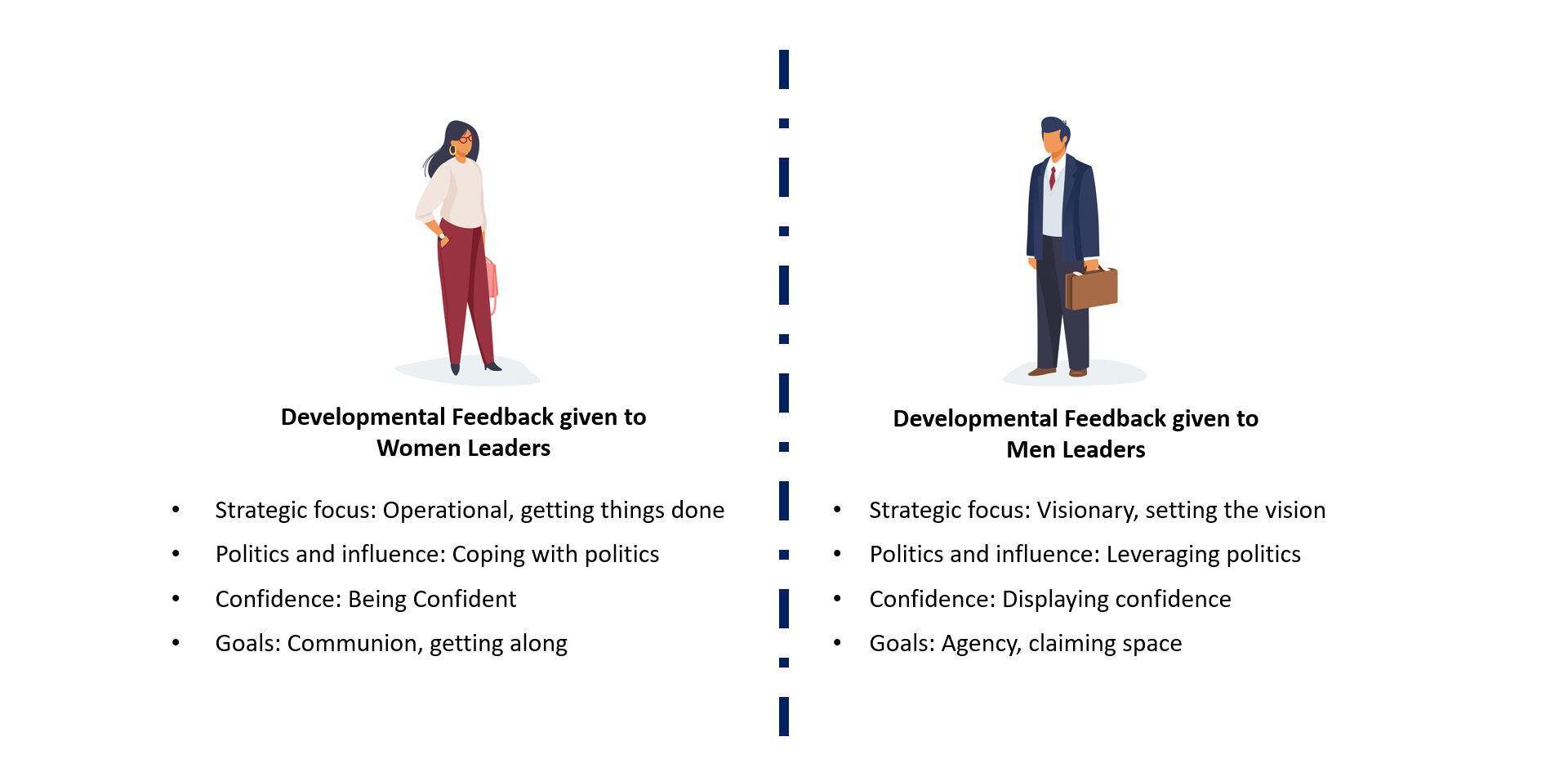Digest 34. Gender-biased feedback: the reason for few women execs?
With women comprising half of the world population, it is surprising -to say the least!- that women are under-represented in senior leadership positions. While developing good leaders is fundamental for the success of organizations in the long-run, and it is indeed the object of significant organizational investments, little attention has been paid to how developmental feedback may help men and women become better leaders (to learn about the effect of developmental feedback on newcomers check out Digest 31). Developmental feedback provided to future senior leaders is meant to open their eyes on the way they should act or how to change their behaviors to progress and succeed. But are these developmental feedback messages different for women in comparison to men? And if so, how different are these feedback messages?
Can it be the case that developmental feedback messages are gender-biased?
To answer this question, Doldor, Wyatt, & Silvester (2019) qualitatively analyzed a dataset which was comprised of 1057 written comments about the development needs of 98 men and 48 women elected leaders for local government in the UK. These comments were provided by their colleagues and officials with the aim of helping these leaders to develop.
Their analysis showed that the feedback comments women received drew their attention to become operational and getting things done; men, on the other hand, were suggested more often than women to be strategic and set the vision. Therefore, women were directed towards developing technical skills which would limit them to becoming technical experts, while men were recommended to develop their visionary skills and focus on strategic agendas.
Moreover, women were told to be more resilient, less sensitive, have a thicker skin, and cope with politics; while men were actually encouraged to leverage and manage politics proactively by building network and exerting their influence behind the scenes.
Men were similarly recommended to display more confidence while women were told to be more confident showcasing the preconceptions of women intrinsically lacking confidence.
Last but not least, Doldor and colleagues found that on average the feedback given to women pointed them toward being interpersonally sensitive and trying to get along with their colleagues; rather, men were advised to claim their space as leaders, be ambitious and agentic in fulfilling their potential. Overall, women’s leadership potential was not recognized to the same extent that men’s potential was recognized, and women were encouraged much less to develop their ambitions in comparison to men, regardless of their performance since men and women who received the feedback had equal performance ratings.
While being operational, resilient, confident, and getting along with others are important traits for leaders to be successful, one needs to be strategic, visionary, ambitious, agentic, proactively influence others, and display confidence to be able to become a senior leader. Overall, this study showed that the developmental feedback messages provided to women were less likely to help those women with the visionary and the political skills they need for senior leadership roles, ultimately failing to support them for their career progression.
Organizational implications
To be more gender inclusive and less biased in the formulation of developmental feedback offered to leaders, the following suggestions can be helpful to organizations:
Developmental feedback messages provided to leaders should be monitored and, if needed, recalibrated and enriched to cover the relevant issues for developing necessary skills in senior leaders.
To avoid gender biases, when offering developmental feedback to women in leadership positions make sure it is actionable and challenging, and includes comments about strategic vision and proactive approach towards political influence. For more gender differences in the feedback context check out Digest 25.
——
Reference: Doldor, E., Wyatt, M., & Silvester, J. (2019). Statesmen or cheerleaders? Using topic modeling to examine gendered messages in narrative developmental feedback for leaders. The Leadership Quarterly, 30(5), 101308. https://doi.org/10.1016/j.leaqua.2019.101308

